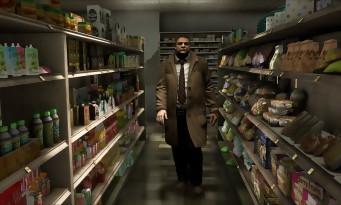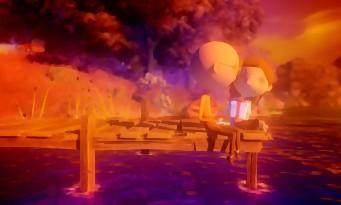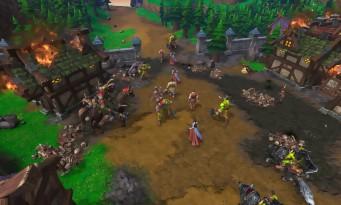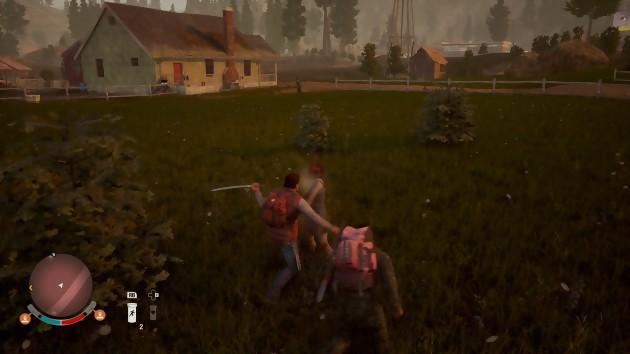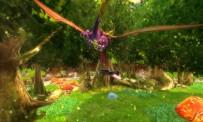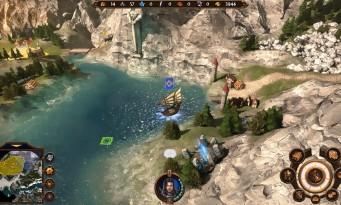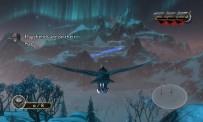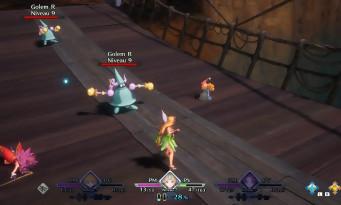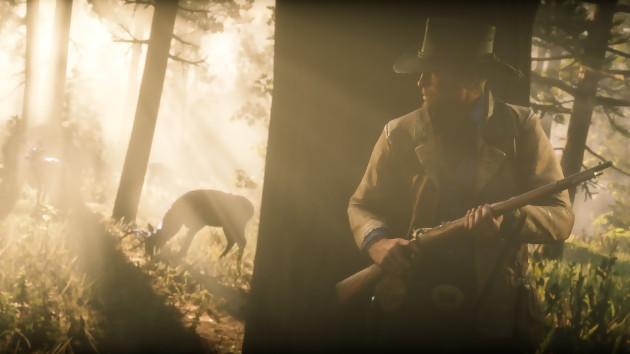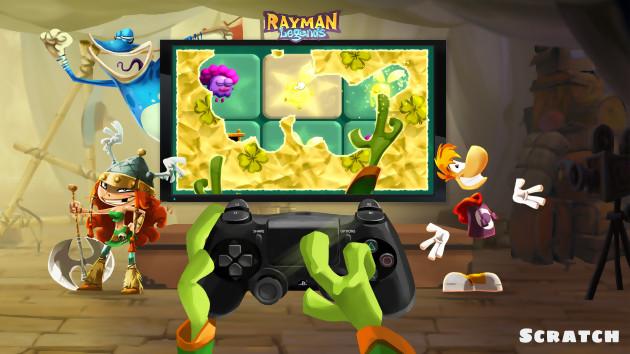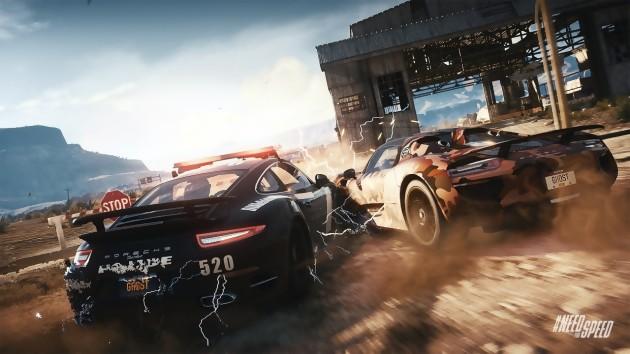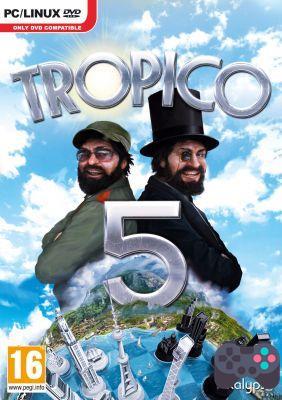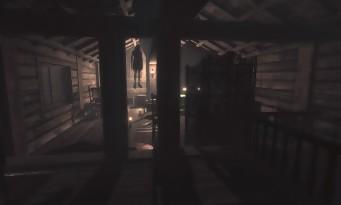 Those Who Remain, literally "Those who remain" in the language of Molière, arrived a little neither seen nor known on digital stores. Its authors, an independent studio that has already made a few apps like Syndrome, Mechs & Mercs or GeminiWars, have an obvious penchant for science fiction and action. However, here, they are destined for another genre that is definitely in vogue: pure horror, combined with an adventure and investigation game with narrative inclinations. We thus embody, in first-person view, Edward Turner, a man “with a troubled past” whose face we will never see. Lost in the small American town of Dormont, he will have to find a way out through the darkness. In this one, dark silhouettes with bright eyes, frankly not very advisable for the aperitif, since they massacre the first one approaching it.
Those Who Remain, literally "Those who remain" in the language of Molière, arrived a little neither seen nor known on digital stores. Its authors, an independent studio that has already made a few apps like Syndrome, Mechs & Mercs or GeminiWars, have an obvious penchant for science fiction and action. However, here, they are destined for another genre that is definitely in vogue: pure horror, combined with an adventure and investigation game with narrative inclinations. We thus embody, in first-person view, Edward Turner, a man “with a troubled past” whose face we will never see. Lost in the small American town of Dormont, he will have to find a way out through the darkness. In this one, dark silhouettes with bright eyes, frankly not very advisable for the aperitif, since they massacre the first one approaching it.
GERARD DORMONT
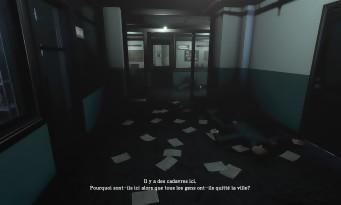 Then begins a particularly dark adventure in which we sail from zone to zone (a house, a gas station, a library, a fire station and so on), each harboring its secrets and tormented stories. Those Who Remain is not an action game, no, it relies on a very simple gameplay based on exploration, where you are asked to search the environment to detect elements that will be used to advance through the levels. Beyond the timeless key for a door, the game design focuses above all on the play of light: it is impossible to go into the shadows without being attacked and therefore to return to the last checkpoint (far too far for the most part, by the way). Concretely, he is then asked to find and then press each switch in each room, so as to eclipse the evil demons. A rather effective idea which furiously recalls the chilling short film Lights Out, but which quickly dwindles since the enemies do not represent any threat by their immobility.
Then begins a particularly dark adventure in which we sail from zone to zone (a house, a gas station, a library, a fire station and so on), each harboring its secrets and tormented stories. Those Who Remain is not an action game, no, it relies on a very simple gameplay based on exploration, where you are asked to search the environment to detect elements that will be used to advance through the levels. Beyond the timeless key for a door, the game design focuses above all on the play of light: it is impossible to go into the shadows without being attacked and therefore to return to the last checkpoint (far too far for the most part, by the way). Concretely, he is then asked to find and then press each switch in each room, so as to eclipse the evil demons. A rather effective idea which furiously recalls the chilling short film Lights Out, but which quickly dwindles since the enemies do not represent any threat by their immobility.
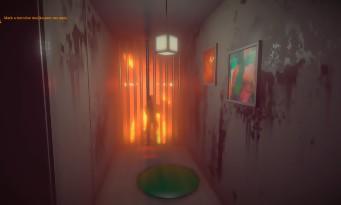 Very quickly, if not immediately, comes a first big flaw: an ultra-messy reading of the environment. We therefore find ourselves going around in circles endlessly to search for hidden objects, often without much coherence and, unfortunately, no help is provided for the impatient or the people really in difficulty. It's quite infuriating and it is especially associated with imprecise gameplay (especially on console), slow and painfully dull which, it must be admitted, ultimately provides very little feeling. Fortunately, some small puzzles come to punctuate the progress in a more relevant way and, sometimes, enemies "compromise" things: the quotation marks are indeed in order because adversity is very quickly surrounded, mastered and almost turned to ridicule because of a strawberry technique.
Very quickly, if not immediately, comes a first big flaw: an ultra-messy reading of the environment. We therefore find ourselves going around in circles endlessly to search for hidden objects, often without much coherence and, unfortunately, no help is provided for the impatient or the people really in difficulty. It's quite infuriating and it is especially associated with imprecise gameplay (especially on console), slow and painfully dull which, it must be admitted, ultimately provides very little feeling. Fortunately, some small puzzles come to punctuate the progress in a more relevant way and, sometimes, enemies "compromise" things: the quotation marks are indeed in order because adversity is very quickly surrounded, mastered and almost turned to ridicule because of a strawberry technique.
GOOD NIGHT CHILDREN
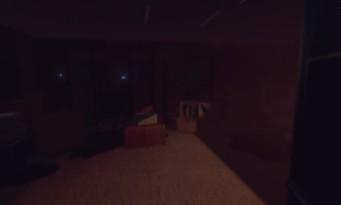 It must be admitted that being pursued (rarely) by an NPC with unfinished modeling and almost non-existent textures quickly raises questions. It is the same for all these figures hidden in the dark, duplicated as possible, always fixed and immobile, or these characters whose lips simply do not move and with animations from another age, which comforts us a little more in the idea of being in a series Z horror film. In general, moreover, the adventure is frankly ugly and the framerate in the cabbage (we tested on the game on PS4 Pro ), with also many lighting issues and recurring collision/physics issues, sometimes really off-putting. Of course, we know that Camel 101 is a small studio with a reduced staff and budget and this obviously has to be taken into account: only here it is, above all, it is a question of having achievable ambitions, or else of doubling of ingenuity to take the guts and create a unique experience.
It must be admitted that being pursued (rarely) by an NPC with unfinished modeling and almost non-existent textures quickly raises questions. It is the same for all these figures hidden in the dark, duplicated as possible, always fixed and immobile, or these characters whose lips simply do not move and with animations from another age, which comforts us a little more in the idea of being in a series Z horror film. In general, moreover, the adventure is frankly ugly and the framerate in the cabbage (we tested on the game on PS4 Pro ), with also many lighting issues and recurring collision/physics issues, sometimes really off-putting. Of course, we know that Camel 101 is a small studio with a reduced staff and budget and this obviously has to be taken into account: only here it is, above all, it is a question of having achievable ambitions, or else of doubling of ingenuity to take the guts and create a unique experience.
Despite its obvious inspirations from the side of PT or the dirigiste but effective Layers of Fear, is still too perfectible to fascinate.
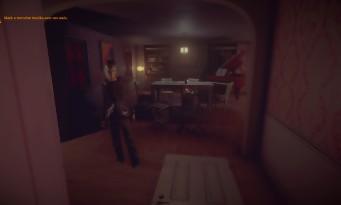 This audacity, Those Who Remain does not have it and despite its obvious inspirations from PT or the dirigiste but effective Layers of Fear, is still too perfectible to fascinate. Its desire to offer a horrifying tale with adult morality is indeed present but is lost in a deja vu that is not very credible, too cliché, whose video game foundations are anything but solid. Despite everything, some thrills are guaranteed, thanks in particular to a sharp audio atmosphere and some ideas that will remind Insidious (and its famous Distant), serving at ease a level design which, sometimes, tries things. But Those Who Remain remains a devilishly long adventure (between 7 and 10 hours for a first run) and whose end, scandalously sloppy, is definitive proof of the lack of means and/or ideas that could have made it at least a tasty odyssey.
This audacity, Those Who Remain does not have it and despite its obvious inspirations from PT or the dirigiste but effective Layers of Fear, is still too perfectible to fascinate. Its desire to offer a horrifying tale with adult morality is indeed present but is lost in a deja vu that is not very credible, too cliché, whose video game foundations are anything but solid. Despite everything, some thrills are guaranteed, thanks in particular to a sharp audio atmosphere and some ideas that will remind Insidious (and its famous Distant), serving at ease a level design which, sometimes, tries things. But Those Who Remain remains a devilishly long adventure (between 7 and 10 hours for a first run) and whose end, scandalously sloppy, is definitive proof of the lack of means and/or ideas that could have made it at least a tasty odyssey.




